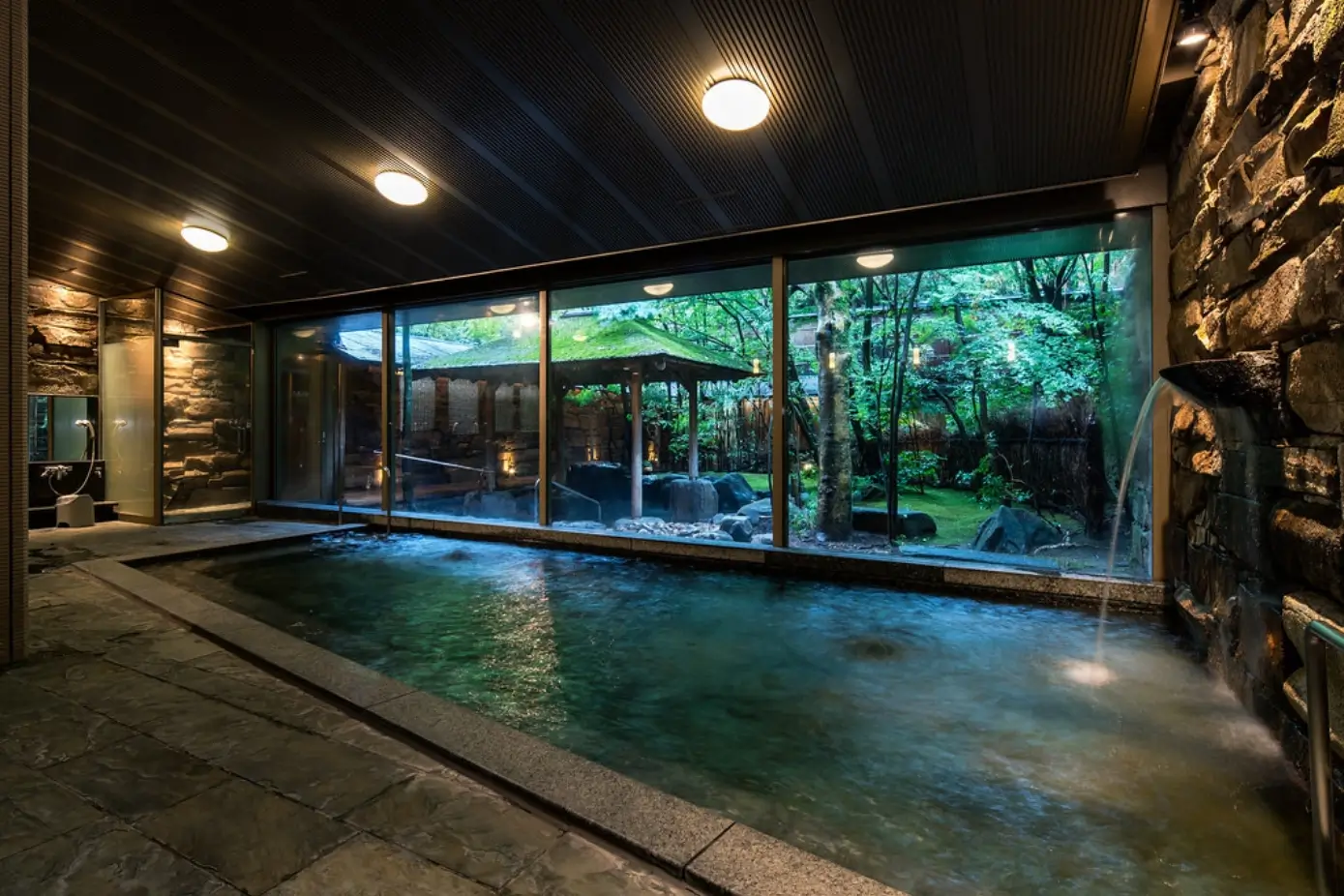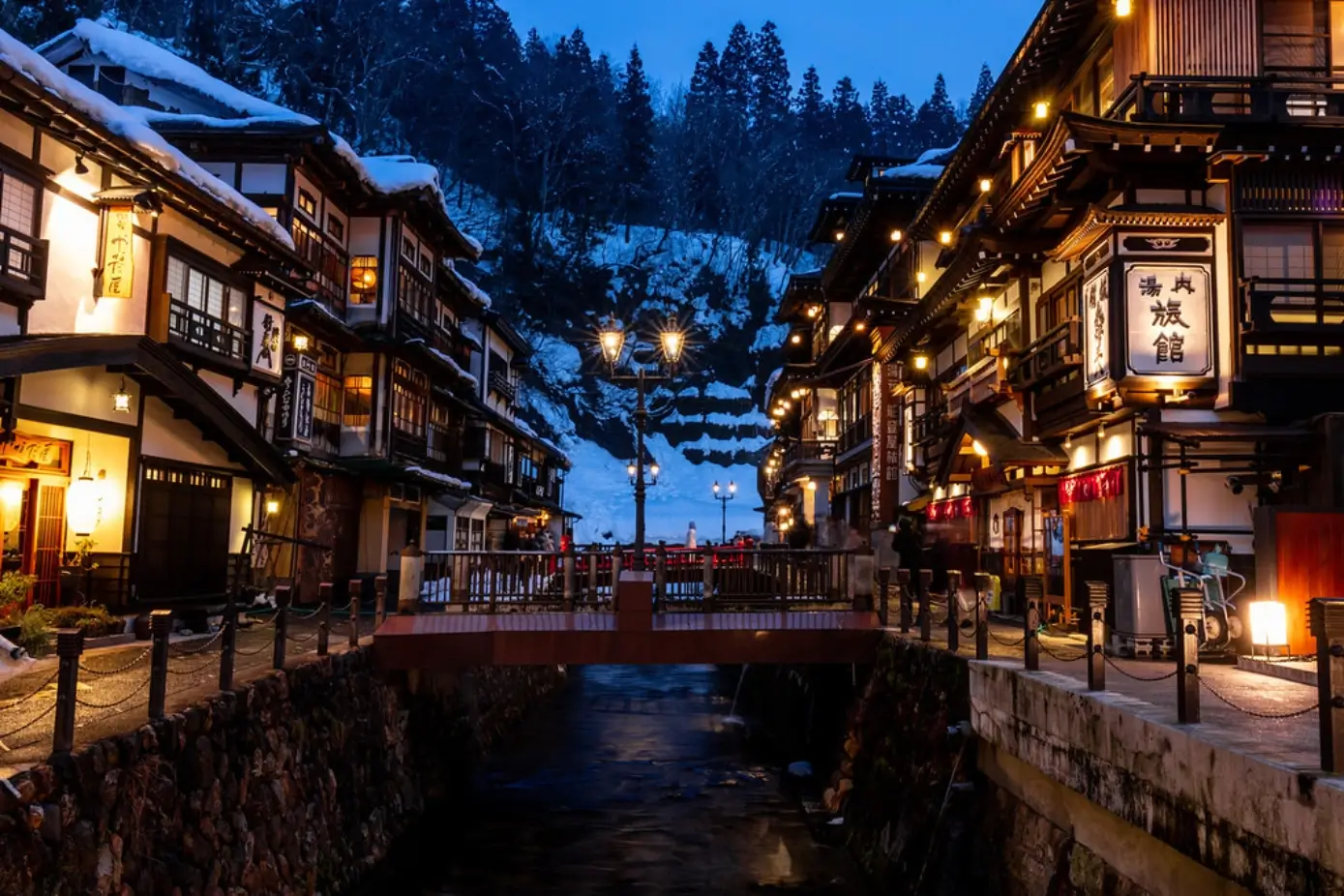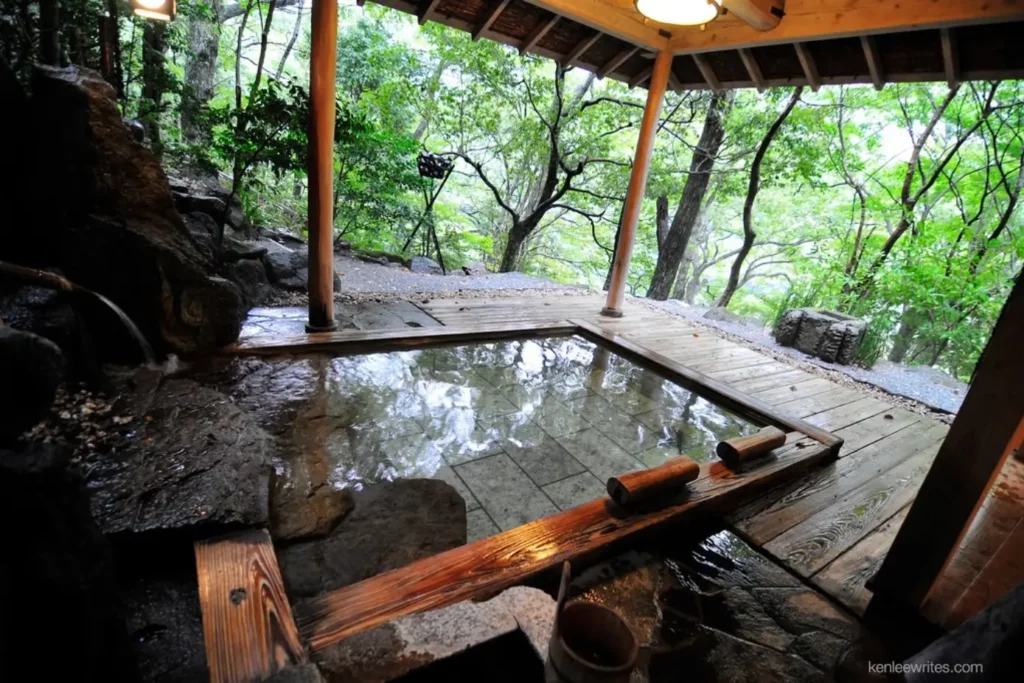An onsen, or Japanese hot spring, is more than a bathing experience. It’s a cherished cultural tradition in Japan. If you’re planning to visit an onsen for the first time, understanding the etiquette is crucial. This guide will walk you through the dos and don’ts to ensure you enjoy this unique experience respectfully and comfortably.
Onsen Guide Content
- Onsen Etiquette: The Basics
- What is an Onsen?
- Entering the Onsen: A Step-By-Step Guide
- Tattoos and Onsen
- Choosing the Right Onsen
- Onsen Do’s and Don’ts
Onsen Etiquette: The Basics
| Etiquette | Description |
|---|---|
| Shower Before Entering | Cleanse your body thoroughly in the shower area before entering the onsen. |
| No Swimwear | Bathe naked; swimsuits are typically not permitted. |
| Quiet and Calm | Keep conversations low and avoid splashing or swimming. |
| Towel Placement | Keep your small towel out of the onsen water; place it on your head or the side. |
| Post-Onsen Rinse | Rinse off in the shower after your bath to clean away the hot spring minerals. |
| Tattoos | Be aware that tattoos might not be allowed; check with the onsen beforehand. |
What is an Onsen?
An onsen is a term used in Japan to refer to a hot spring, but it is much more than just a natural thermal bath. It’s a cultural institution deeply ingrained in Japanese tradition, celebrated for its healing and rejuvenating properties.
Entering the Onsen: A Step-By-Step Guide

- Shower First: Always shower before entering the onsen. This is crucial for maintaining the cleanliness of the communal bath.
- No Swimwear: Onsens are typically enjoyed naked. Also, swimsuits are generally not allowed.
- Quiet and Peaceful: Onsens are places of relaxation. Keep conversations low and avoid splashing water.
- Keep Towels Out of the Water: Your small towel should not touch the onsen water. Place it on your head or at the side of the bath.
- Rinse Off: Gently rinse off in the shower again to clean away the minerals from the onsen water.
- Hydrate: Drink water after your bath to rehydrate, as the hot water can be dehydrating.
Tattoos and Onsen
- Tattoo Stigma: In Japan, tattoos are traditionally associated with the Yakuza, leading to restrictions in many onsens.
- Tattoo-Friendly Onsens: Research to find onsens that are accommodating of tattoos.
Choosing the Right Onsen

Where to Find the Best Onsen in Japan?
From the snowy landscapes of Hokkaido to the mountainous regions of Honshu, each onsen offers a unique experience. Explore the best places to visit in Japan for onsen ideas.
The Different Types of Onsen
- Public and Private: Onsens can be public baths or part of a hotel or ryokan (traditional Japanese inn). There are also private onsens that can be booked for individual or group use.
- Indoor and Outdoor: Onsens come in various forms, including indoor baths and outdoor pools, known as rotenburo, which allow bathers to enjoy the natural surroundings.
Do’s and Don’ts
Do’s
- Hydrate: Drink water before and after the onsen.
- Cleanse: Wash and rinse off thoroughly before entering the bath.
- Enter Slowly: Enter the water slowly and quietly.
Don’ts
- No Splashing: Avoid splashing or swimming in the onsen.
- No Cameras: Do not bring phones or cameras into the onsen area.
- No Soaping in Onsen: Do not wash or rinse with soap directly in the onsen.
Final Thoughts
Visiting an onsen in Japan is a unique experience that combines relaxation with cultural immersion. Understanding and following onsen etiquette ensures not only a more enjoyable experience for you but also maintains the serene atmosphere that onsens are known for.
FAQ
Yes, traditional onsen etiquette requires bathing without clothing or swimwear.
Some onsens allow tattoos, while others do not. Research beforehand or use cover-ups if allowed.
You can enjoy Onsens year-round, but they are particularly popular during the cooler seasons. Check out the best time to visit Japan for more details.
Yes, onsens are welcoming to non-Japanese speakers. Just follow the visual etiquette guidelines.
Yes, children can enter. But they must also adhere to onsen etiquette.







